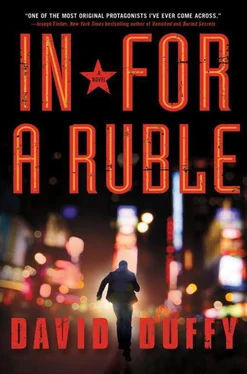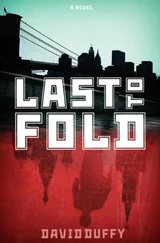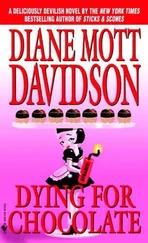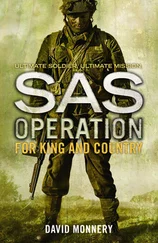I was still looking at Foos. “That mean what I think it means?”
“Maybe.”
“When?”
“Soon.”
Leitz’s summary was accurate as far as it went. The jail he referred to was the Gulag, the network of prison, forced labor, and death camps established by the Bolsheviks, expanded beyond comprehension under Stalin and maintained by his successors up until the end. I was born in the Dalstroi camps, in Siberia, my mother having been sent away twice, the first time for doing nothing, the second time for being arrested the first time. I’d worked hard to overcome my past, including having the official record of my birth and subsequent arrest and imprisonment erased, but I still know I’m a zek —the most shameful thing a Russian can be. Unless he’s also the son of Lavrenty Beria.
Keep things in the present. “Foos tell you what I charge?”
“He was vague about that.”
“Normally, I get hired to find things—people, valuables, money. I take a third of their value as my fee.”
Leitz laughed. It filled the room, pushing at the walls. “I can’t argue with that. I more or less charge the same thing. But if we assume this is about the TV deal, we’re talking about a sixty-five-billion-dollar transaction. A third of that…”
“Could be real money.”
Leitz laughed some more. Maybe it was his brains, maybe it was his success, but I could tell I was dealing with someone totally comfortable in his own skin. You don’t meet many people like that.
“You said you appreciate cash,” he said. “Tell me how much you want—within reason.”
I shook my head. If this was meant as a way to take my mind off my troubles, I might as well have some fun with it.
“I don’t get paid unless I’m successful. But if I am—that is to say, if I find a way in and access your data—I’ll take a painting as my fee.”
He looked skeptical. “You know the value of some of these works…”
“Is more than twenty billion?”
He laughed again, quietly this time. “Point taken. Which painting?”
His eyes went to the Malevich, mine followed, but I knew that was a nonstarter. I thought about the Rothkos outside, but it would be a shame to break up that quartet. I like both Kline and Motherwell, but while I don’t work cheap, I’m not a gouger.
“I’ll take the Repin.”
He didn’t hide his surprise. “There are many more valuable works…”
“It’s an arbitrage opportunity. I figure the market will catch up.”
He grinned at that. “That was my assumption when I bought it—six years ago. So far, it hasn’t worked out.”
“You made a bad trade. Here’s your chance to get out.”
“I wouldn’t say bad. I happen to enjoy the picture. But if that’s what you want…”
“Done.”
* * *
Foos was chuckling, shaking his head as we walked down the block.
“What’s funny?” I asked.
“You, man. What else? You mope around for months—no focus, no energy. You say you’re depressed. Can’t get it up for anything. You go home to the old country, come back in worse shape than ever. You’re a total pain in the ass, not to put too fine a point on it. So I set you up with the smartest guy on Wall Street, and it takes you maybe ten minutes to size him up and play him for a sucker. They teach this in spy school?”
“Your friend Leitz is looking at the issue from the wrong perspective. A common problem, as he pointed out.”
“I wouldn’t remind him about the common part, if I were you. He’s already gonna be plenty pissed and he’s got a big-ass temper.”
“I always follow your advice. When are you going to let me at the Basilisk?”
“Soon, like I said. How long you going to take to do this job?”
I shrugged. “You got me into this. How long you want me to take?”
Foos grinned. “He’s let this TV deal go to his head. Thinks he’s a big shot. Go for maximum impact.”
“In that case, we should be in sometime tomorrow.”
The Sam Ash musical instrument empire anchors the Times Square end of West Forty-eighth Street between Seventh and Sixth and evokes, in a cramped quarter block, New York of a different era. Low-rise brick and stone buildings, coated with decades of grit and grime, windows jammed with guitars, amps, drums and horns—all carrying SALE! signs screaming about deals beyond belief. I could imagine A. J. Liebling and his telephone-booth Indians hanging out in the neighborhood, as they had a half century earlier, hustling tourists, eating at cheap luncheonettes, drinking in seedy bars, hitting the occasional nightclub when they wanted to strut their stuff. If I worked the imagination harder, Miles and Bird and Diz played the “52nd Street Theme” in the background. I could even hear Symphony Sid’s midnight radio broadcasts from the original Birdland—the Metropolitan Bopera House, as he called it—just four blocks up Broadway. The streets would have been full of men in wide-striped suits and fedoras, their women wearing tight dresses with flared skirts and heels. At least that’s how I saw it, from the records of the bop era, the writings of Liebling and others, and movies of the period. By the first time I arrived in New York, 1977, that era was long over, and a sea of sex shops drowned the area in sleaze.
It took a few decades, but the city drove the sex emporia away (or at least to other neighborhoods) and the developers moved in, toting tax incentives and architectural plans for new skyscrapers, each bigger and uglier than the last. Once built, they pulled off the dubious accomplishment of evoking nostalgia for the strip joints and peep shows. My destination was one of those office towers, but it was only 6:30 P.M., and I had time to kill before one New York work day came to an end and another began. I could have spent a wistful hour in a bar, but one vodka led too easily to another these days, and I told myself I was working, which required a clear mind. So I strolled the streets, thinking about the past—near and far—and reminding myself jobs are not all that easy to come by, and I should be grateful I had one. I’m good at rationalizing, less so at listening to myself when I do. I tried to focus on the Repin portrait and where I was going to hang it. That made me feel a little bit better.
I walked around a crowded Times Square, half the people on the street heading home after work, the other beginning their evening out. I heard at least a dozen languages, tourists enjoying the bright lights of the Great White Way—one of New York’s enduring sights. Except the lights left me cold these days, partly because of my frame of mind, but mostly because the heart of the place had been gutted. The old Times Square neon had character and seedy charm. These lights were as soulless and airbrushed as the buildings they were mounted on.
An enormous baritone saxophone, five vertical feet of tangled brass, a shiny relic of Liebling’s bygone era, caught my eye in the Sam Ash window. It carried a SALE! tag of $4799! I stopped to contemplate the economics of the musical instrument business. Not much call for baritone sax players these days, or any days, yet to get in the game required an upfront investment of nearly five grand, not to mention the cost of learning to play the thing. This was one of those instances when capitalism didn’t add up, at least not to an ex-socialist. In the Soviet Union, the instrument would have been owned by the state and used by an individual of appropriate interest and skill. There would have been a perceived benefit to society, justifying the expense, of having well-trained and -equipped baritone saxophone players—if only because the West had them too, and we had to keep up. Here the cost was borne entirely by the misguided person who fell in love with the baritone sax—as opposed to, say, the piano, violin or, better yet, electric guitar—with little hope of recouping his investment, at least through use of the instrument. But maybe, as Leitz said, I was looking at the issue from the wrong perspective. I’d have to ask him.
Читать дальше












